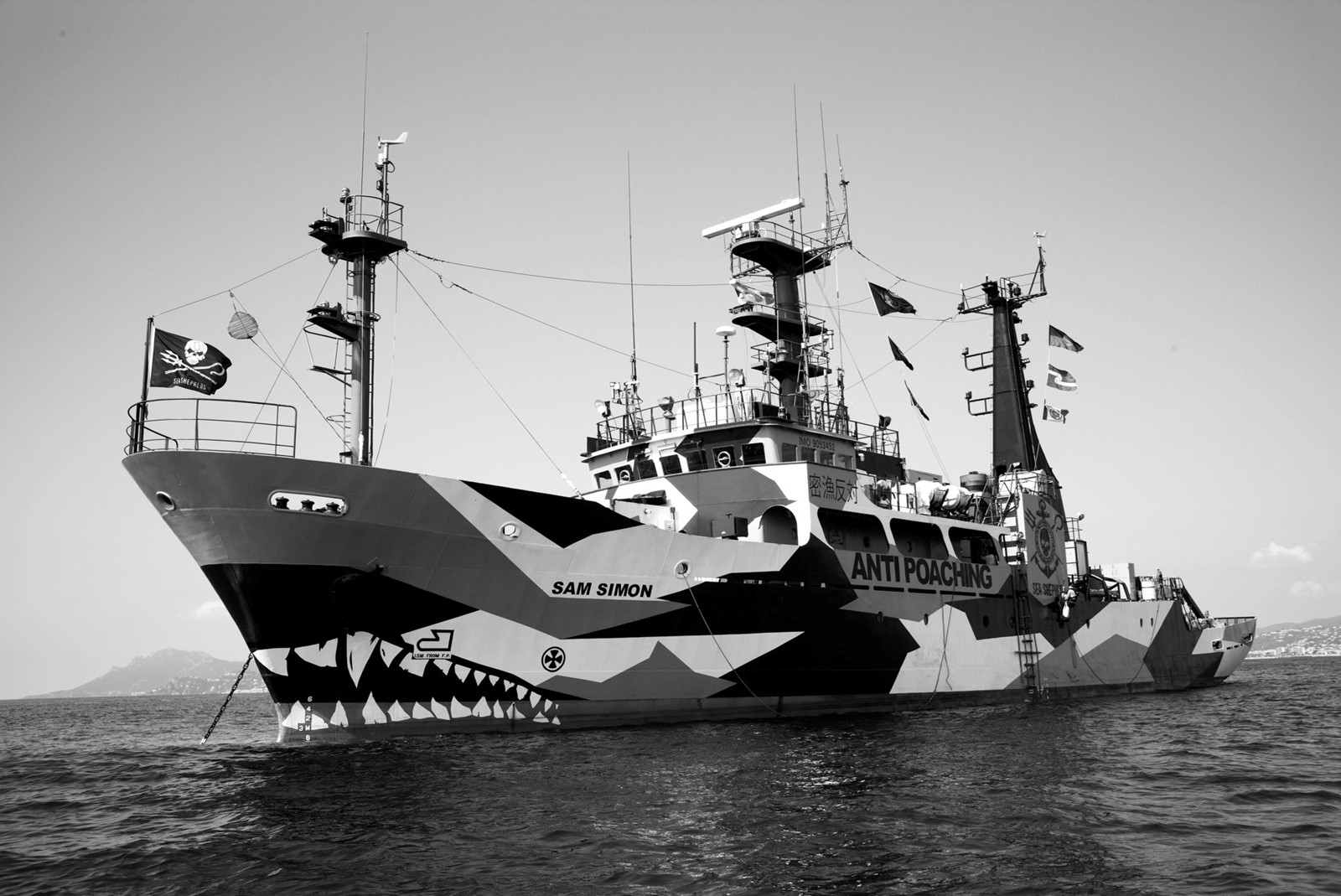At night, little illuminations suspended from the palm trees drip like melting ice onto the Croisette. The sky is dark blue. The sea, made luminous by the moon, laps onto the fine, manicured Mediterranean sand, and the promenade is filled with handsome men in black and white tuxedos and women in impossibly glamorous gowns. The flash-lights of a thousand cameras file. Jodie Foster and Julia Roberts, Kirsten Dunst and Kate Moss ascend the red-carpeted stairway to movie heaven.
It is like a scene from Fellini’s most fervid wet dream. Out in Cannes bay, the lights glitter on the assembled fleet of the world’s most expensive yachts. They shine in the moonlight. Paul Allen, Microsoft founder, has parked his Octopus in the middle, a vast yacht more like a liner, laden with no fewer than two submarines and a helicopter. Other helicopters buzz over the far quayside, delivering their personal cargo to the party. And amid all this surreal transition of a seaside resort, among all the fabulousness and artifice, among this epitome of congratulatory celebrity, sits another kind of vessel.
It is painted with a shark’s ferocious teeth, grey and green industrial camouflage, or dazzle ship, patterns, and resembles a Mad Max mash-up between a naval cruiser and a research ship, an overgrown Airfix kit repurposed to some unknown military state. I last saw this ship from the air, a thousand feet up, as it was sailing into Hobart harbour in Tasmania. The young Australian pilot of the Cessna, in whose co-pilot’s seat I was sitting, all but tipped his wings to the vessel below. “There’s Sea Shepherd,” he said proudly, “coming back from saving our whales.”
This is Sam Simon, the latest addition to Sea Shepherd’s eight strong fleet. It flies a piratical crossed shepherd’s crook and trident against a glaring skull (along the flags of indigenous peoples and first nations who approve its intentions), and it is here to make its point. Adam, its captain, a former Californian diver turned eco-warrior, tells me that the ship received a deputation from the local hotels soon after it arrived in the bay. “They’d sent the police across to ask us to move the ship,” he says. “They said it was intimidating their guests.” That, of course, is the point. And of course, the ship didn’t move.
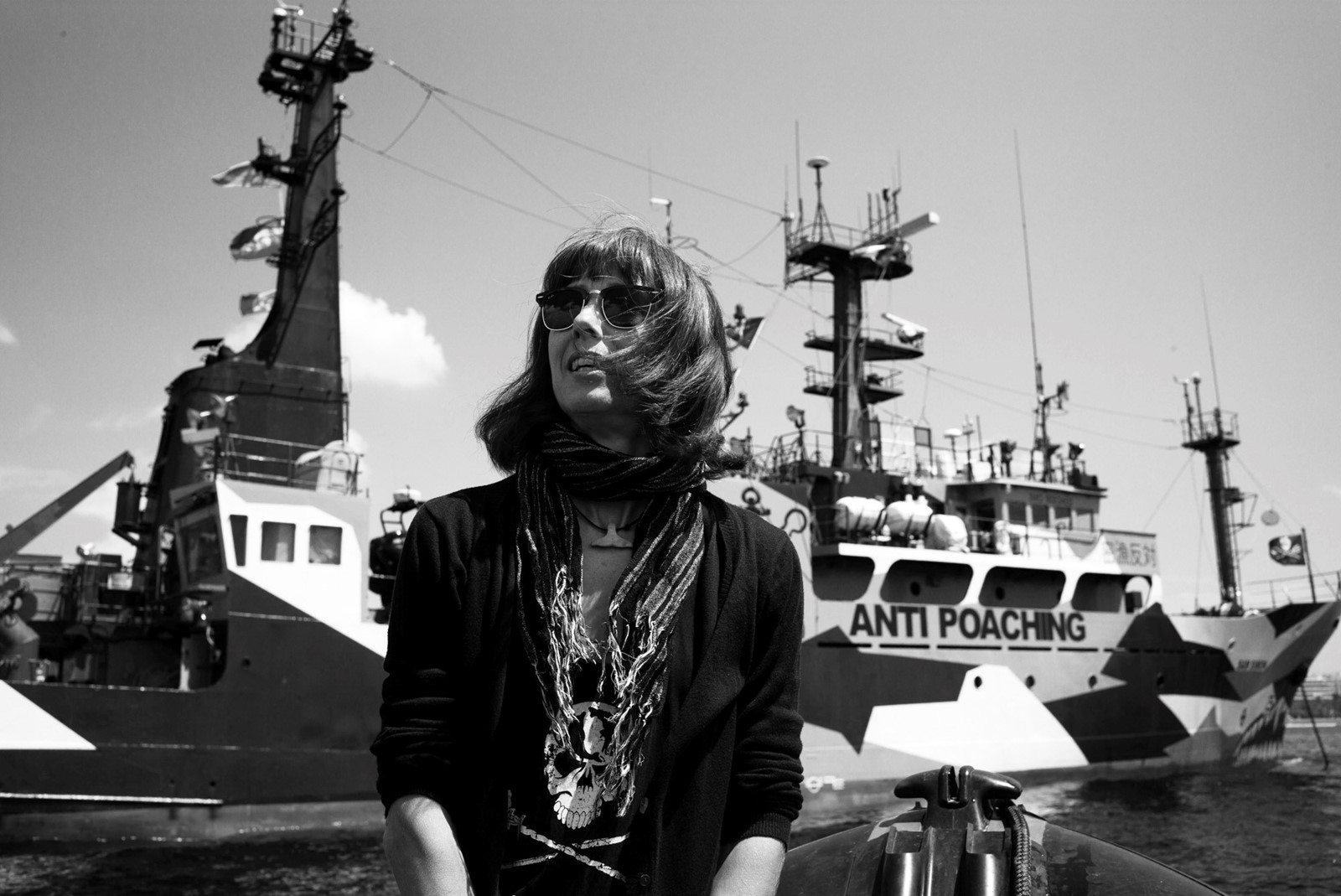
Sea Shepherd is the personal mission – I hesitate to say ‘empire’ – of its founder, Paul Watson. Now 66, Canadian-born, with a shock of white hair and a broad, animated face, he was in at the very start of the late 20th-century environment. A founding member of Greenpeace, he helped pioneer protests against nuclear power and the clubbing of seals; but most famously, he has pledged himself to the defence of the sea, and its largest, yet paradoxically most vulnerable animals, the whales.
Watson’s epiphany came in 1975, when at sea, protesting Soviet whaling off California. He saw a bull sperm whale harpooned. In its death throes, its eye met his. “The gaze of the whale seized control of my soul and I saw my own image reflected back at me. I was overcome with pity, not for the whale but for ourselves.” It was that encounter, which Watson often retells (latterly at the COP21 climate change side-conference organised in Paris by the marine action group, Parley), which reordered his life. “I didn’t want to protest”, as he told Sam Vincent, an embedded Australian journalist and author of Blood & Guts: Dispatches from the Whale Wars, “I wanted to intervene”.
As Greenpeace grew far from its radical roots (as he saw it) and became more like a corporation – “raising money just to pay for itself” – Watson split. He founded the Sea Shepherd Conservation Society in 1977, and ever since, has fought a fierce campaign of “non-violent but direct action” against, most famously, the Japanese whaling fleet which defies world opinion by hunting whales in the Pacific and Southern Oceans.
“Operation Zero Tolerance” deployed four ships, five inflatable boats, one helicopter, two drones and a crew of 120, representing 24 nationalities. Its daring fame or notoriety was stoked by the hit TV series, Whale Wars, which relayed in dramatic reality-TV detail the Samson and Goliath battles between the hardened Japanese whalers and Sea Shepherd’s crew of vegan volunteers, many of whom look like they joined straight from Glastonbury.
Paul Watson’s message overrode, with his characteristic impatience for process and diplomacy, all the pettiness of those who were content to watch while sentient animals were massacred. He became a new force in the battle for the world’s most precious resource – the planet itself – and by virtue of his unadulterated activism, garnered a vast and lucrative support among like-minded people, both ‘ordinary’ and notable.
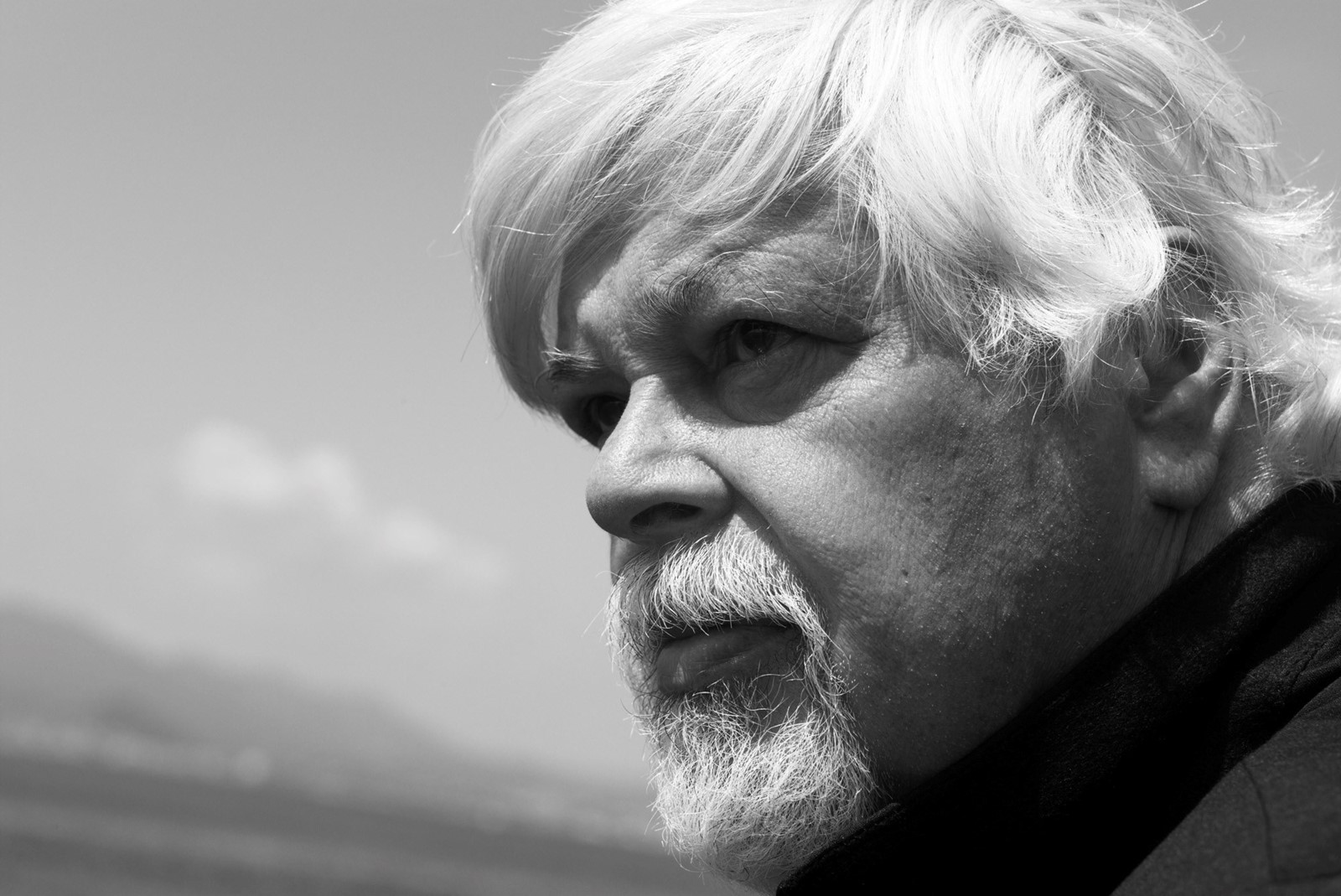
Watson inspires an almost cult-like adulation in his volunteers. On another visit to Tasmania in 2010, I met the crew of his ill-fated ship, Ady Gill, a black glossy trimaran which looked more like something out of the Batcave. They were wide-eyed in their mission. One older hand told me, “They’d take a bullet for him if it was necessary”. A few weeks later, Ady Gill was smashed up in a dangerous collision with a Japanese whaling support vessel. Sea Shepherd claimed their boat had been rammed.
Actors, filmmakers, rock groups have rallied to Watson’s cause: Sean Connery, Brigitte Bardot, Martin Sheen, Daryl Hannah, Christian Bale, Sean Penn, Aerosmith, the Red Hot Chilli Peppers. Even the Dalai Lama. It is such support, and the donations they raise which Watson uses to fund his campaigns, which now extend to commissioning new ships and new missions for his fleet, known as ‘Neptune’s Navy’.
Sea Shepherd’s annual income amounts to more than $12 million, from 50,000 financial donors. With the whale wars almost done – Watson believes the Japanese whaling industry is now in terminal decline, reliant on government subsidy and sinecured retirement cabinet ministers – Sea Shepherd has turned its attention to the depletion of the oceans’ fish. Watson predicts that if we go on as we are, by 2048, there will be none left. And as he institutes new campaigns from northern Europe to Senegal, he has a new champion to join him.
From across the bay, on a sunny morning, not long after the Croisette and the other streets of Cannes have been washed clean of the debris of all yesterday’s parties, ready for the whole process to begin again, a low black Zodiac, powered by its outboard engine, zooms across the calm blue water to pick us up from the dock.
We are taken past those luxury yachts to the side of Sam Simon (named in honour of its late benefactor, the co-creator of The Simpsons), where a slight, muscular, lithe woman with a shock of red hair clambers up the rope ladder dangling precipitously from the grey side of the boat. You would never assume, from the expert manner in which she accomplishes this boarding procedure, that Sylvie Guillem was not a child of the sea. “I’m scared of it!” she admits. Her grandfather used to take her fishing on his boat, but she made no connection with the water. “When I was growing up in Normandy, it was a cold place, filled with algae and seaweed. I don’t even like swimming in it.”
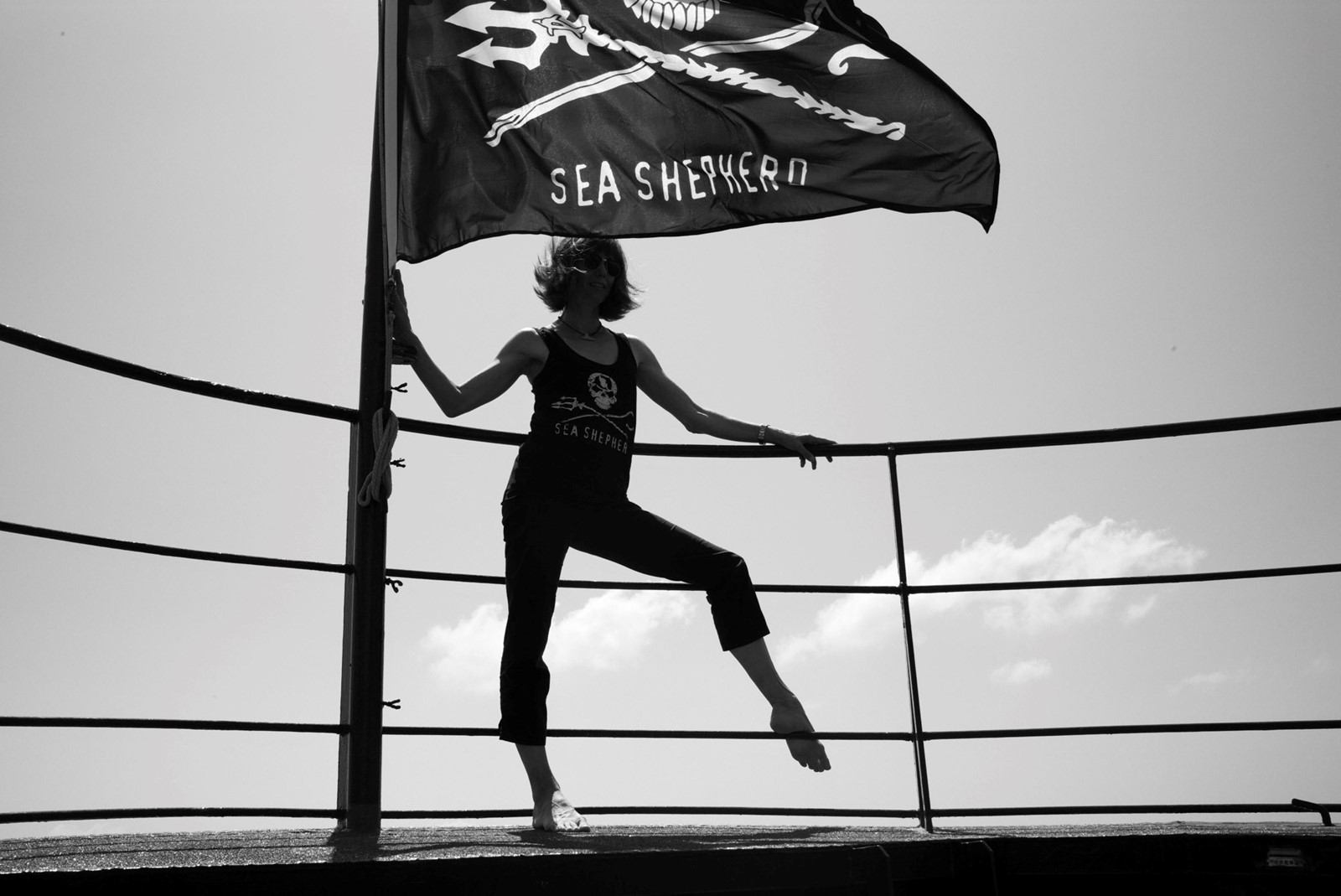
At 51, Sylvie Guillem, brought up in the suburbs of Paris as the daughter of a mechanic and a gym teacher, may have become one of the world’s most celebrated dancers, renowned for her work with the Paris Opera Ballet under Rudolph Nureyev (who shocked the company by making 19-year-old Guillem its youngest étiole) and the Royal Ballet and Sadler’s Wells in London and a recipient of France’s most prestigious award, the Légion d'honneur, but performing in the glittering auditoria and becoming a beloved public figure has not dimmed her thirst for radical action. Since announcing her retirement from the stage in 2015, she has embarked on a new mission, one which draws on her fierce and rebellious personality.
In 2011, Guillem watched a television programme on Sea Shepherd’s campaign to challenge the piracy of the sea which was taking vast amount of fish from the ocean. Watson says as much as 50 percent of all fish is gathered illegally and affecting not only this fragile resource, but the livelihoods of local fishermen in the developing world. On her last tour of three dances she commissioned, 6,000 Miles Away, Guillem visited Japanese areas hit by the 2011 tsunami to raise funds; she also had leaflets from Sea Shepherd distributed among her audiences during the tour.
These are provocative acts. The Guardian’s dance critic Judith Mackrell noted of that last tour that even then, Guillem took her performance to new extremes, “being forced to the precarious edges of movement, classical poses that implode in a rush of staccato activity, and phrases that twist and turn against the natural flow of the body”. That comment might stand for her activism, too. “I have to put myself in situations that frighten me,” as Guillem has said.
“I stopped eating fish. I just couldn't go on consuming it, knowing what I did... I do not want any animal to die for me.” Sylvie Guillem
As a dancer, Guillem uses her physicality in self-expression. She used that same sense of her body to make her first protest, after seeing the Sea Shepherd film. “I stopped eating fish,” she says. “I just couldn't go on consuming it, knowing what I did.” Shortly after, she gave up eating meat, too. It “changed radically my life,” she says. “I do not want any animal to die for me.” At this Paul Watson – who is sitting by her side as we talk, perched on bollards at the prow of Sam Simon – chips in, ”Of course, much of the production of meat in the West relies on fish being used to feed meat – it’s a crazy process.”
What brought them together, this unlikely pair? Isn’t Watson just using Guillem's celebrity? Of course he is. He tells me how last year he approached the Russian president about taking action on a cargo vessel, Winter Bay, which was exporting 1,700 tons of fin whale meat from Iceland through Russian waters to Japan. But he knew his word had little sway. “So I asked Pamela Anderson to write to him. She asked him for a personal meeting.” Last December, Anderson met Putin's chief of staff, and she has since praised Putin’s environmental awareness.
I ask Guillem if, as she gets older, she finds herself becoming more radical. “I was reading a Jewish writer the other day,” she tells me. “He was writing just after the Second World War, making clear how the threat to the environment was already apparent, even then.” As far as she is concerned, there is no time left. “This is urgent,” she says. “If the oceans die, we all die.” Hence the fact that she is sitting next to a man whom many governments regard as an eco-terrorist. Watson doesn’t even bother to scoff. “It amazes me that it is so-called political conservatives who run the world’s governments when people like me are the real conservatives – conserving our resources.”
There’s something in the dynamic between these two people which balances over. Something that you might see as Watson’s love of celebrity and name-dropping – the way he tells us Piers Brosnan gave him a watch which he can’t wear, because any jewellery irritates his skin (the way he irritates international governments). But it is both more and less than that. And what they want from each other, these two people, it is difficult to tell. I just sit there, asking the questions, the audience to their performance. It is far from the performances being enacted on the red carpet on the shore behind us, so brightly lit by artificial light. It is a performance, nonetheless.
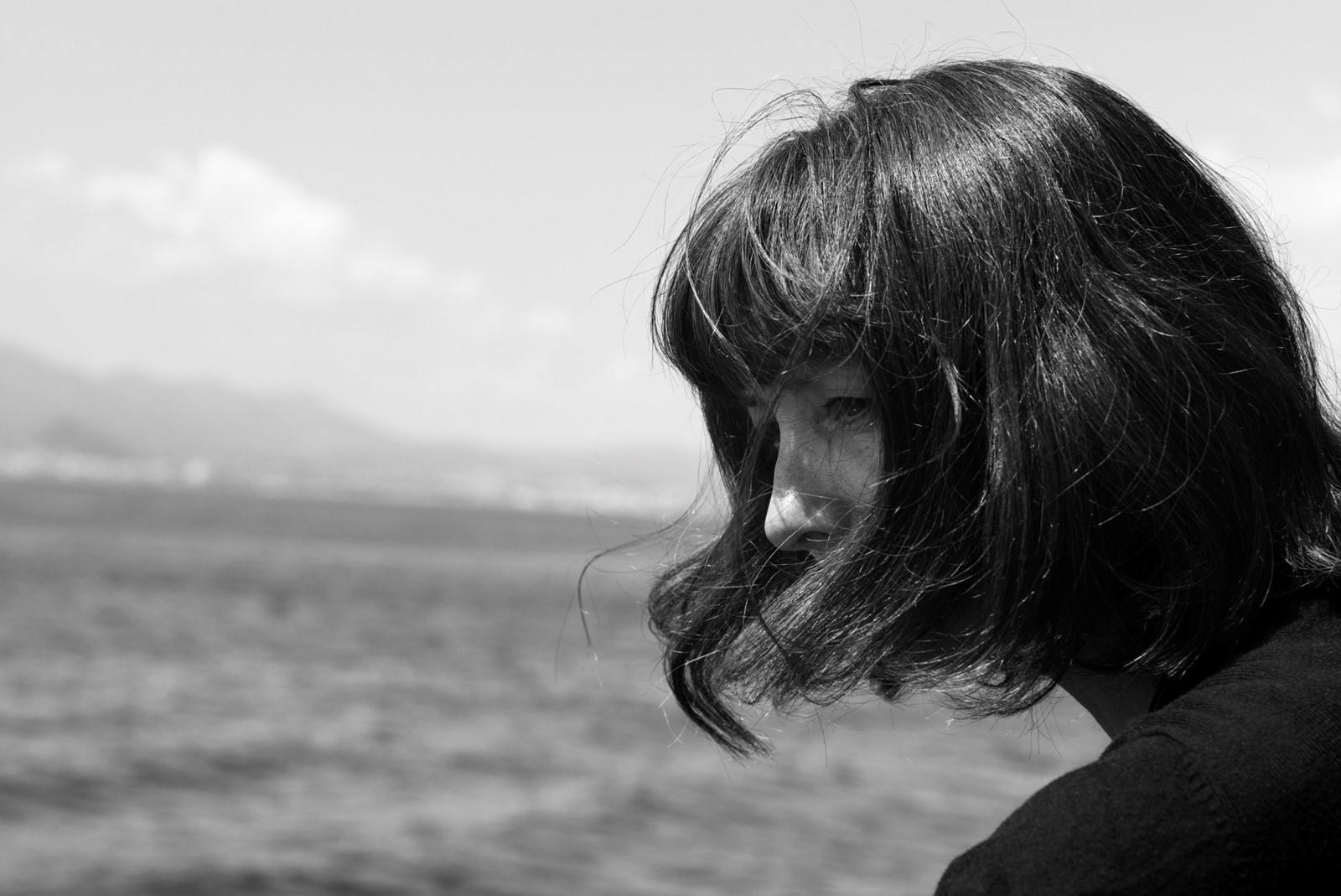
In many ways, your work as an artist has been about provocation, making people feel and react emotionally, I say. Is that why this new project appeals to you? “My work was not really about provocation,” Guillem insists. “It was just unconventional and instinctive, like I have no other way to do it! Provocation means premeditation. What I was doing on stage was about reactions. Paul knows that there are no other ways to change the course of things than to act on the field.” Sea Shepherd’s actions are “instinctive solutions to survive and help endangered animals,” she says.
Is that what you bring to it, I ask her – your passion? Is there a sense in which it is taking the place of your public performances, after your retirement from the stage? Is this your new stage, your new performance? Guillem disagrees. “It is not a passion,” she says, “at least not yet. It is a visceral reaction towards what seems unfair and unjust. It cannot take the place of what I was doing, it is the expression of what I am.”
Yet as a dancer, you are intensely vulnerable, I say. You put yourself, your body, on the line, in public. Isn’t your commitment to Sea Shepherd like that? “My commitment to Sea Shepherd came unfortunately late in life,” she says, regretfully. “My life up to today was different, it was following a path which was mine. I had pleasure and passion following it. Now I am in a connective zone, a transition airlock, a place where all could be possible.” Everything about her offers a physical response. Her eyes are intensely brown. Her hands, one finger embellished with a heavy gold Byzantine ring, perform their own choreography. Everything is precision.
“It is not a passion, at least not yet. It is a visceral reaction towards what seems unfair and unjust.” Sylvie Guillem
You talk of your apprehension about the sea – I wonder if this new venture is a way of challenging that fear – just as your work as an artist has challenged yourself? “Yes it could be something like this,” she acknowledges. “Every new project had its share of fear, doubts and very unpleasant moments, but even knowing that it would not be holidays on a cruise ship, I could not stop throwing myself into new projects.”
You are expressing your fear about our future. The sea embodies that future. How much further do you think this project will take you? We all know that these issues can evoke ‘eco-fatigue’, a sense of inevitability to the whole process. Are you now an eco-warrior? Guillem is never less than honest with her answers. If her English is a little fractured, her spirit is unshakeable and resolute.
“Where we are now, any action can contribute! This is my daily personal politic. But to touch many people – enough to stop the immense suffering and destruction – I don’t think the artist is enough. Maybe a combination of a TV reality star, the Pope and a soccer player could attract enough people to make a real difference. Pessimistically or optimistically, the battle goes on.”
Yet what she is now doing is bridging another culture gap: not between stage and audience, but between the human and the natural world. It is a vast distance. Sometimes only an artist like Guillem can close that space.
A week after I leave Guillem in Cannes, I find myself in the mid-Atlantic, swimming with sperm whales off the islands of the Azores. Again and again I dive in the water, sharing its depths with these vast creatures. Yet as huge as they are, it is their beauty which entrances me.
I come face to face with one extraordinary female whale, her body marked with unique pigmentation. Across her middle is a swathe of perfect pearl grey, shading away into fractured shards of darker grey, tailing off towards her flukes. The effect is of some extraordinary haute couture creation by a Japanese designer, perhaps, or a monochrome tricoleur. As I watch, below the sun-shattered surface, the enormous, exquisite animal turns in the water, like a dancer, pirouetting in an element of which she is her own choreography.
Back in my hotel, there’s an email waiting for me. Guillem writes to me from Italy, apologising for a longeur in her reply, telling me she’s been spending most of her time up olive trees. After our conversation in Cannes, she says she’s decided to go ahead and try to swim with whales. “I don't know if it will happen and how,” she tells me, in her idiosyncratic English, “but the switch is on!”
